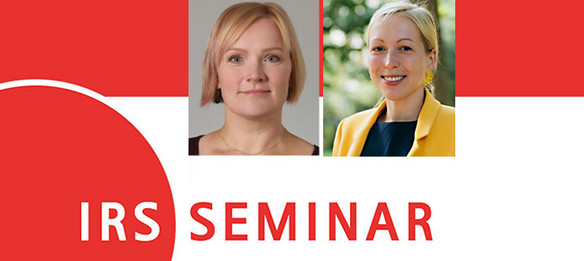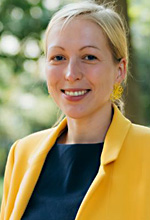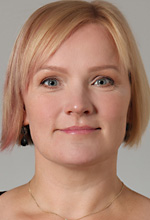Main Content
Rural Areas in Estonia and Germany
Untertitel IRS Seminar with Bianka Plüschke-Altof and Kadri Leetmaa and examples presented by Benjamin Schaarwächter and Fabian Schroth

All over Europe rural areas are often affected by out-migration, peripheralisation and a growing backlog in (digital) infrastructure and innovation dynamics. At the same time there are examples of villages in which innovative initiatives develop new, situation- and problem-specific local solutions. The workshop opens the debate on current developments in Estonian and German rural areas, discussing both challenges and innovative opportunities.
Programme
10:00 Welcome
Prof. Dr. Gabriela Christmann | Leibniz-Institute for Research on Society and Space
10:05 Rural peripheralisation in Estonia: Reflections upon the challenges of coping with a self-reinforcing process
Dr. Bianka Plüschke-Altof | Tallinn University
10:45 Changes in the residential environments and the qualities of rural areas
Dr. Kadri Leetmaa | University of Tartu
11:10 Coffee Break
11:30 Smart Villagers: Digitalisation and social innovations in rural areas
Prof. Dr. Gabriela Christmann, Dr. Christian Reichel, Dr. Ariane Sept, Nicole Zerrer | Leibniz-Institute for Research on Society and Space
11:55 Digitally supported social innovations in rural areas I: “Hof Prädikow”
Benjamin Schaarwächter | Hof Prädikow
12:20 Digitally supported social innovations in rural areas II: “Horizonte erweitern”
Dr. Fabian Schroth | Fraunhofer Center for Responsible Research and Innovation CeRRI
12:45 Discussion
Rural peripheralisation in Estonia: Reflections upon the challenges of coping with a self-reinforcing process

Dr. Bianka Plüschke-Altof | Tallinn University
In recent decades, growing socio-spatial polarisation has been prevalent in Central and Eastern European countries. Also in Estonia, regional inequalities have increased due to the rapid urbanisation, and large parts of the Estonian settlement system that were once economically and socially vital small towns and rural villages have become peripheral within the country – in material as well as in discursive terms. As a consequence they do not only suffer from economic downturn, out-migration and a lack in service provision, but are also subjected to territorial stigmatization and invisibility in times where regional competitiveness and place promotion have become a central pillar of Estonian regional policy. In the light of the recent emphasis on agency-based concepts in regional polarisation debates (e.g. leadership, image-making, smart villagers), it is crucial to reflect upon the complexities of coping with a self-reinforcing peripheralisation process. In the IRS Seminar, Bianka Plüschke-Altof analyses the dynamics of rural peripheralisation in the Estonian context and explore the possibilities and limits of acting in structurally disadvantaged places.
Vita
Bianka Plüschke-Altof is Researcher in Environmental Sociology at the School of Natural Sciences and Health at Tallinn University in Estonia. A dominant theme in her research relates to questions of socio-spatial and environmental justice, with specific focus on Central-Eastern Europe. She has finished her undergraduate studies at Humboldt-Universität zu Berlin in Germany and the University of Warsaw in Poland and her graduate studies at the University of Tartu in Estonia and the Slovak University of Technology in Bratislava. In 2014 she received a Marie Curie fellowship as Early Career Researcher as part of the ITN “Socio-economic and Political Responses to Regional Polarisation in Central and Eastern Europe” coordinated by the Leibniz-Institute for Regional Geography in Leipzig, Germany. In 2017 she defended her PhD thesis, which analysed spatial inequalities and territorial stigmatization in Estonian rural areas. Currently, she is investigating space-making practices and discourses on the case of urban gardening and green spaces in Tallinn as part of the research group “Human-Nature interactions in the city”, funded by the Tallinn University fund.
Changes in the residential environments and the qualities of rural areas

Dr. Kadri Leetmaa | University of Tartu
In her presentation Kadri Leetmaa concludes the main results of Estonian Human Development Report 2019 in the field of rurality, based on contributions of Estonian leading researchers in the field of urban and regional planning. The main take-away messages are as follows:
(1) The lower levels of the settlement system of Estonia become more and more depopulated. Peripheral rural areas and small towns, but also regional centers lose population. Providing basic services in peripheral districts is a key challenge for the next decades. Estonian peripheral regions are so-called double-peripheries. Besides being located far from Estonian major centers, these regions also locate in European periphery.
(2) The official Leitbild according to the Estonian National Spatial Plan is “a dispersed city”, meaning that Estonian disperse settlement system should capitalize from good connections, enabling people to choose among diverse residential environments. In reality, even when some districts are able to attract the “new rural” residents, these people only rarely have direct connection with rural living and landscapes. Around major cities suburban sprawl wastes the valuable landscapes and agricultural land, these trends also spread into periphery. Thus the “rurality” and “dispersed city” needs to be redefined and reinvented, this also would inform strategies to cope with shrinking processes.
(3) Accessibility in peripheral districts but also in growing suburbs is increasingly enabled through private cars, this however, isolates some population groups (e.g. elderly, children). Also, there is no answer how the major and costly planned international infrastructure projects support the connectivity of peripheral districts. New “rural” settlements are built without any public space and with very prove connectivity.
Vita
Kadri Leetmaa [F] is the Senior Researcher in human geography and the Head of the Centre for Migration and Urban Studies, Department of Geography, University of Tartu. She defended her PhD in human geography in 2008 at the same institution. Kadri Leetmaa is a recognized scholar in the fields of urban social geography, socio-economic and ethnic segregation, residential mobility, housing, and urban policies and planning. She has been the PI in the Estonian Science Foundation and European Social Fund funded research projects in the period 2009-2015. Currently she is the PI in ERA.Net RUS Plus project “Estates After Transition” (2018-21). Since 2017 Kadri Leetmaa is holding the position of National Contact Point of EU URBACT programme. She has published 23 high-level research papers for international audience, many of them in the leading journals in the field (Annals of the Association of American Geographers, Urban Studies, Energy Policy, International Journal of Urban and Regional Research, Demographic Research, etc.).
Smart Villagers: Digitalisation and Social Innovations in Rural Areas
Prof. Dr. Gabriela Christmann, Dr. Christian Reichel, Dr. Ariane Sept, Nicole Zerrer | Leibniz-Institute for Research on Society and Space
Smart cities are often talked about – but smart villages? Rural areas, particularly in structurally weak regions, are often affected by out-migration and a growing backlog in digital infrastructure and innovation dynamics. Both trends reinforce each other. However, there are examples of villages in which innovative initiatives do not just strive to compensate for deficits, but develop new, situation- and problem-specific local solutions. In doing so, they combine new services with creative uses of digital technologies and sometimes improved digital infrastructures. Hence, the subject matter is digitally supported social innovations. The research goal in this lead project is to better understand such initiatives regarding their content, actors and actor constellations influential in them, their process character and their effects on everyday lives in rural communities.
Digitally supported social innovations in rural areas I: “Hof Prädikow”
Benjamin Schaarwächter | Hof Prädikow
Benjamin Schaarwächter has a Masters in geography and is the developer of “Pampa”, a ride-sharing app, which helps to improve mobility in the countryside. About three years ago he and 40 others started developing the project “Hof Prädikow”, a collaborative co-housing and co-working project in an old agricultural estate and its surrounding farmland in Brandenburg. His project is part of the network “Digitales Landleben — Zukunftsorte” a platform for projects which practice, test and develop the possibilities of collaborative living and working in the German countryside. This innovative platform was awarded one of the best practiced examples by the State chancellery of Brandenburg in 2019. Benjamin is also a passionate cattle breeder, with a strong enthusiasm for sustainable use of pastureland in the Berlin area.
Digitally supported social innovations in rural areas II: “Horizonte erweitern – Perspektiven ändern”
Dr. Fabian Schroth | Fraunhofer Center for Responsible Research and Innovation CeRRI
Fabian Schroth obtained his PhD at the DFG graduate school “Innovation society today”at TU Berlin and has been working as research assistant at Fraunhofer Institut FAO, Center for Responsible Research and Innovation (CeRRI) in Berlin since 2016. He is the project leader of “Horizonte erweitern – Perspektiven ändern” (“Expanding horizons – Changing perspectives”). Aim of this collaborative project is to develop a new understanding of innovation, as well as of knowledge and technology transfer, understanding rural areas as drivers and places of innovation. To this end, on the basis of local needs, desirable and feasible future scenarios for rural areas are developed, implementation projects initiated and new measures, methods and strategies for technology transfer in rural areas will be derived.

